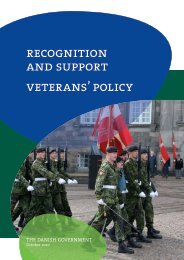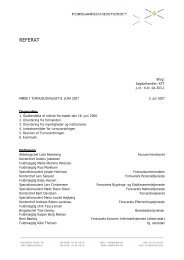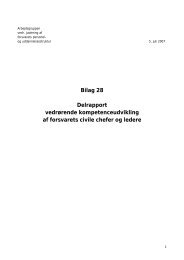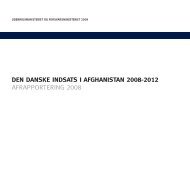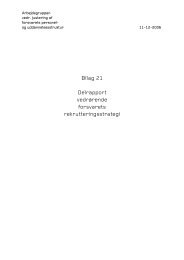Afghanistan Report 2009 - Isaf - Nato
Afghanistan Report 2009 - Isaf - Nato
Afghanistan Report 2009 - Isaf - Nato
You also want an ePaper? Increase the reach of your titles
YUMPU automatically turns print PDFs into web optimized ePapers that Google loves.
Counter-Narcotics<br />
Progress depends on more than reducing the amount of<br />
opium hectarage : it depends on improving security, integrity,<br />
economic growth, and governance. We must concentrate on<br />
winning long-term campaigns, not just short-term battles.<br />
Antonio Maria Costa, Executive Director,<br />
United Nations Office on Drugs and Crime (UNODC), January <strong>2009</strong>,<br />
<strong>Afghanistan</strong> Opium Winter Assessment <strong>Report</strong><br />
There is a recognised nexus between the narcotics<br />
trade and the insurgency. Each year, the insurgency<br />
benefits from an estimated 100 million - 200 million<br />
USD from the narcotics trade. Experience on the<br />
ground demonstrates that opium production and<br />
insurgent violence are correlated geographically<br />
and opium remains a major source of revenue for<br />
both the insurgency and organized crime. The drugs<br />
trade also fuels corruption and undermines the rule<br />
of law. It jeopardises the prospects of long-term<br />
economic growth and impacts on the nation’s health,<br />
as drug addiction is an ever-increasing problem in<br />
<strong>Afghanistan</strong>.<br />
To counter this, the Afghan Government, widely supported<br />
by the International Community ( UK as the G8<br />
lead-nation, USAID, UNODC, etc. ), is implementing<br />
an eight-pillar National Drug Control Strategy ( NDCS )<br />
adopted in 2003 and updated in 2006. It comprises<br />
institutional capacity building, law enforcement and<br />
interdiction, demand reduction, criminal justice reform,<br />
public education, regional cooperation, alternative<br />
livelihoods and poppy eradication. Efforts are led by<br />
the Ministry of Counter-Narcotics and the implementing<br />
agency is the Counter-Narcotics Police.<br />
Part of the plan is also the Good Performers<br />
Initiative (GPI), which was established by the Afghan<br />
Government in 2006 to reward provinces that are<br />
poppy-free and those that demonstrate significant<br />
progress towards becoming poppy-free through<br />
targeted development assistance. Rewards are granted<br />
in one of three categories: poppy-free provinces<br />
(1 million USD each), net poppy reduction (1,000<br />
USD per hectare above 10%, total cultivation) and<br />
special recognition awards (500,000 USD). Eighteen<br />
provinces have earned 28 million USD in the GPI in<br />
2008, including 10 million USD for Nangarhar.<br />
USAID’S ALTERNATIVE<br />
DEVELOPMENT PROGRAMMES<br />
The purpose of USAID’s Alternative Development<br />
programmes is to create licit alternatives<br />
to poppy production by promoting and accelerating<br />
rural economic development. The goal is<br />
to increase commercial agriculture opportunities,<br />
improve agricultural productivity, create rural<br />
employment and improve family incomes.<br />
So far, the individual programmes have succeeded<br />
in introducing a series of technological<br />
( new crops, new varieties and crop production<br />
practices ), organisational ( trade associations<br />
and farmer organisations ) and institutional<br />
innovations. Results include :<br />
• Accelerated sustainable economic development<br />
in poppy regions with high-value licit<br />
crops like pomegranates or grapes. These<br />
programmes assisted in declaring additional<br />
opium free province;<br />
• Over 100,000 people trained in agricultural<br />
sector productivity;<br />
• More than 3.2 million trees planted;<br />
• Over 4,200 metric tons of fruit and vegetables<br />
were exported with USAID support in 2008;<br />
• Over 30,000 farmers are now under contract<br />
with local food processing firms and/or<br />
wholesalers.<br />
(Source: USAID Factsheet)<br />
28





